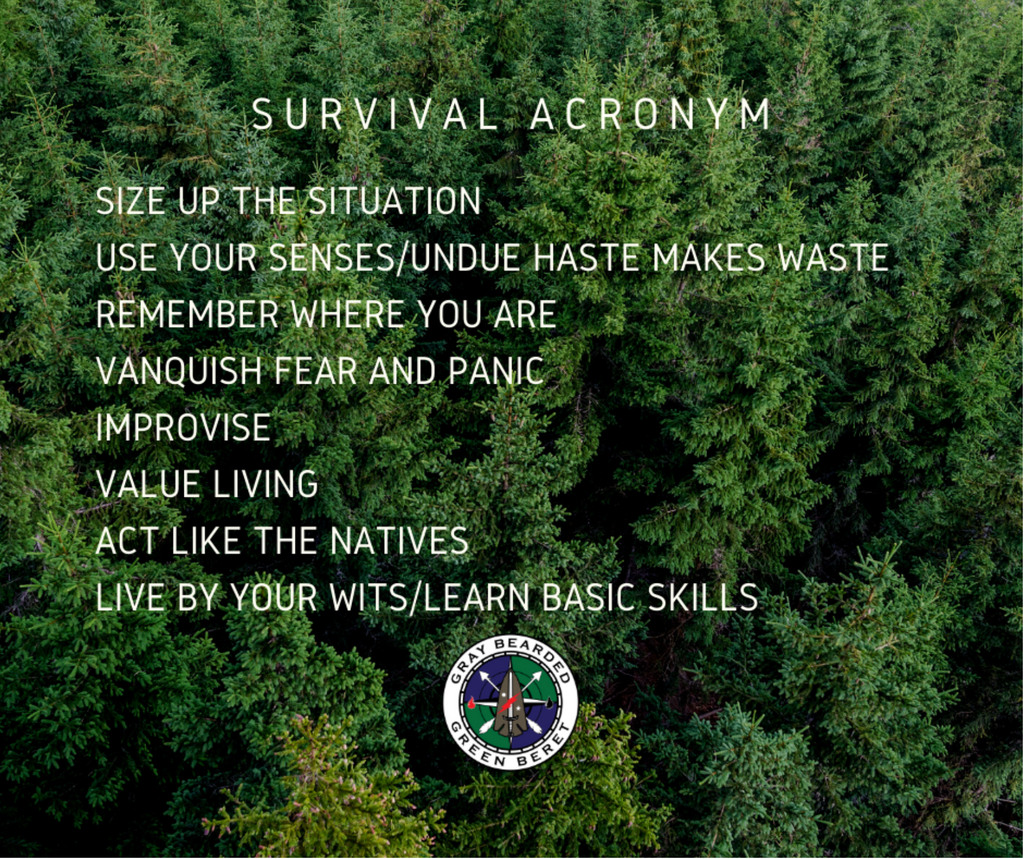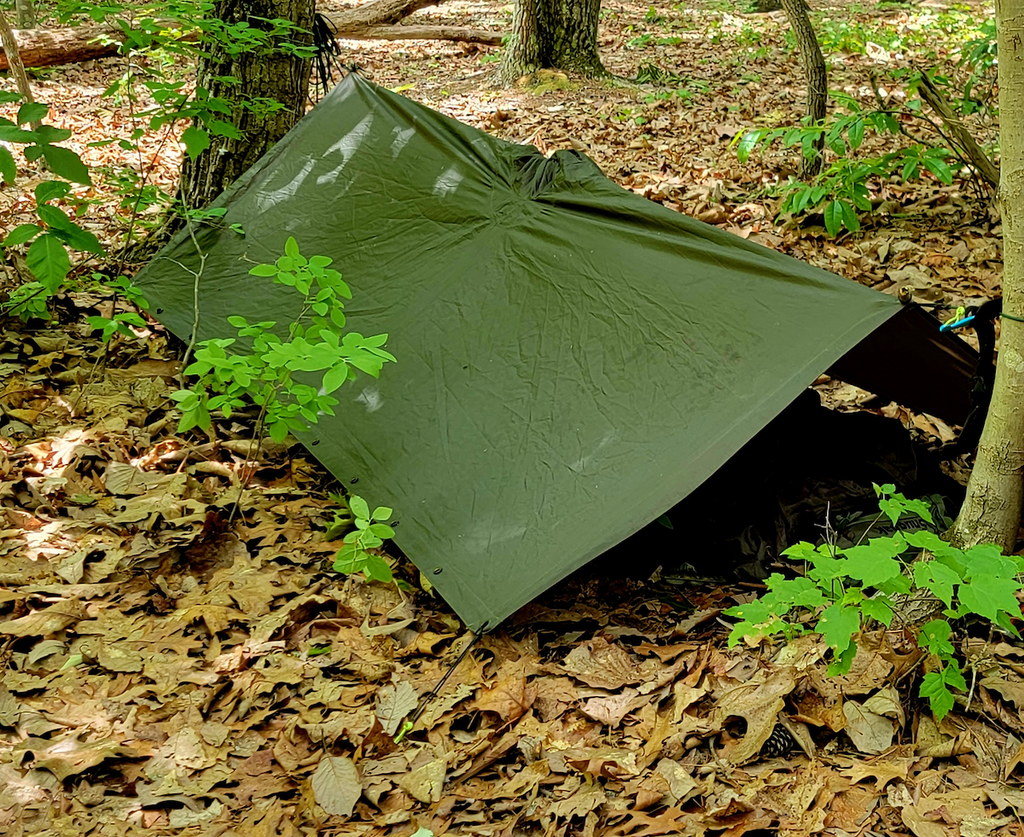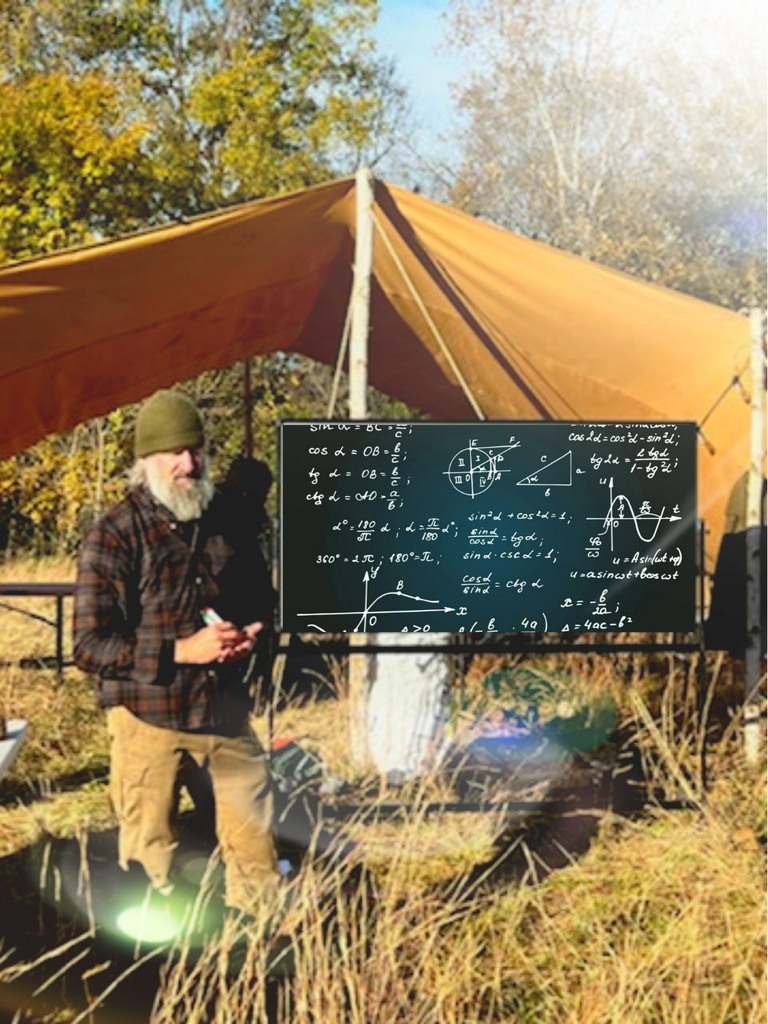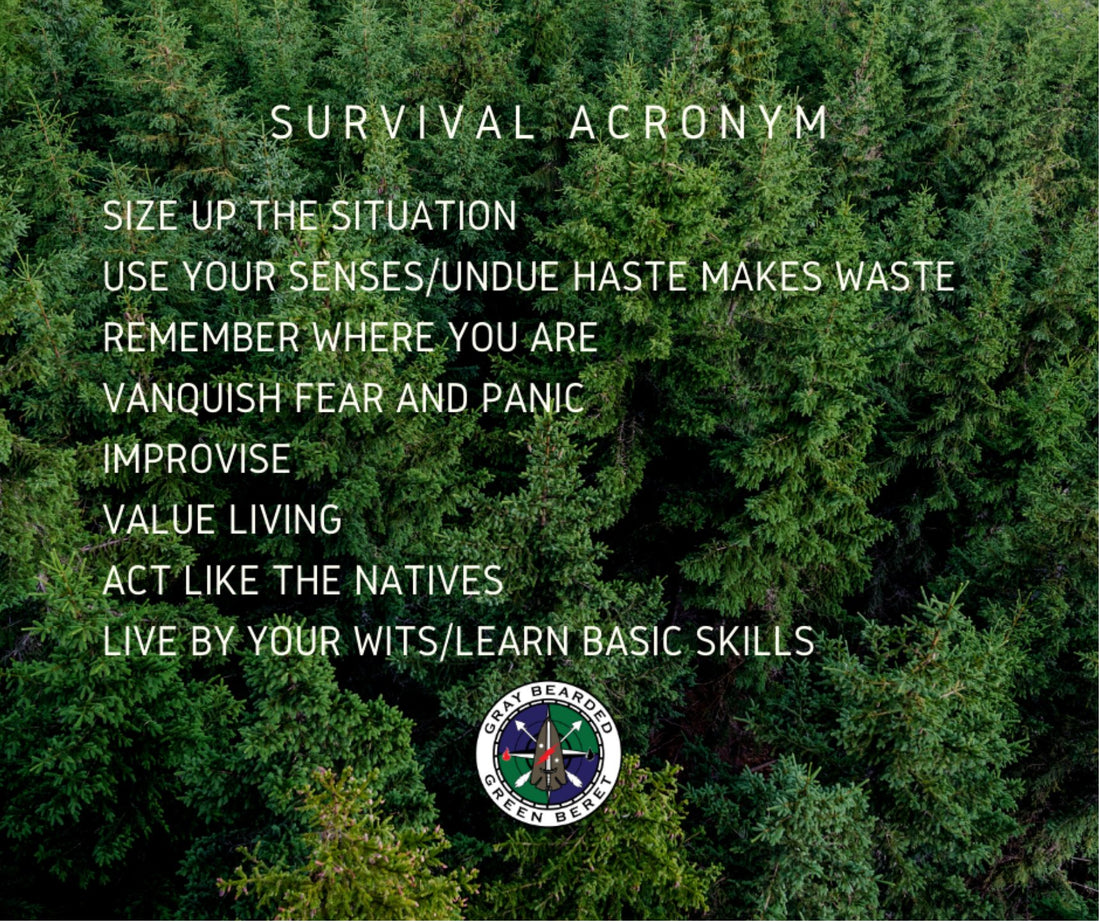Military Survival
In the military we used a lot of acronyms and mnemonics to make things easier to remember. The acronym SURVIVAL was one that I never forgot. It isn’t a perfect fit for the civilian side of things, but I have adapted it to cover some important things to consider in any emergency.

Size Up the Situation:
Make an honest assessment of yourself, your equipment, and your surroundings. Are you physically injured? What resources do you have available in your pack? Look at your surroundings, what natural resources can you identify that will help provide for your needs? Use that information to assist you in making your “Stay or Go” decision. Do you have the knowledge, skills, and resources (and lack of injury) so that you can go? If you choose to stay, do you have adequate resources available to stay here or do you need to move at least as far as a place that does have the resources you need?
Use Your Senses/Undue Haste Makes Waste:
I’d like to introduce you to another military acronym called SLLS (pronounced “seals”). It stands for Stop, Look, Listen, and Smell. Stop what you are doing and take a few minutes to calm yourself and tune yourself into your environment. Look around at your surroundings and try to identify resources like tinder, water sources, natural shelters, or better yet: that yellow trail marker you lost to begin with. Listen for water, vehicles, boats, trains, people, aircraft, distant factories. Do you smell anything like smoke from another campfire or food cooking? Anything at all to clue you in on which direction help or civilization may be. Don’t move just for the sake of moving.
“IT DOES YOU NO GOOD TO GO 100MPH IN THE WRONG DIRECTION."

Use all the information you have available to make decisions. When you do move, move slowly, deliberately, and methodically with the intent of remaining calm and using all of your sense to pick up clues within you environment.
Remember Where You Are:
Never walk anywhere that you aren’t measuring and keeping track of the direction and distance you are going. This is extremely important so that you can backtrack accurately if necessary. If you have a map and compass, use them. Always know exactly how to get to your resources, but also from your resources back to your shelter location.
Vanquish Fear and Panic:
Fear and panic can hinder your ability to make sound decisions and that can make a bad situation worse. It can make you react to your emotions rather than your actual situation and cause other negative emotions to spring up. It’s a very simple equation:
TRAINING + EXPERIENCE = CONFIDENCE.

The more you train and put yourself in difficult situations outside your comfort zone, and the more experience you have in dealing with those situations, the more confident you will be during them.
Improvise:
I have always said that we should never plan to improvise. Improvising is something you do out of necessity because whatever resource you had to perform a particular function has either ran out, or was lost. It should never be the go-to. “i’ll just improvise” is often an excuse for lack of a plan or poor preparation. Be prepared first. Then be prepared to find yourself completely unprepared.
Having said that, the ability to improvise is still extremely important. Improvisation is for those times when you find yourself either unprepared or underprepared. Your imagination, ingenuity, and your ability to see multiple uses for the same item can make each resource that much more valuable.
Value Living:
We are all born with the desire to live. We have since become more and more creatures of comfort as we discussed in Survival Psychology, less able to provide for ourselves outside our normal environment. You have to be willing to rapidly adapt to your current “normal” and provide for your needs despite the less comfortable and less convenient circumstances.
Act Like the Natives:
The natives and animals (animals are considered “native” to an area) have already adapted to the local environment. They also require shelter, water, and food and already know where those resources are. Some of this may be behavior you want to model, or at the very least, use this information to find the same resources.
In the military context, observing “natives” is more meant for a situation in a foreign country. If you were to see people in a civilian context, then you are probably saved. Think of it in a different context:
THE INDIGENOUS PEOPLE OF A PARTICULAR AREA HAD (OR HAVE) ADAPTED PERFECTLY TO THEIR NATURAL ENVIRONMENT USING AVAILABLE NATURAL RESOURCES.

Study how they provided (or provide) for their needs in your area and learn those time tested techniques now. What was a good shelter made from the natural materials in the area you live? Can you develop the skill to make something similar with those same resources in an emergency?
Live By Your Wits:
But for now, learn basic skills that are most applicable to the environment you frequently recreate in. I can’t overemphasize the value of training now, in difficult conditions, so that you can gain that experience and confidence that you may need to call on later.
IT’S A LOT EASIER TO LIVE BY YOUR WITS WHEN YOU AREN’T OVERWHELMED.
Confidence and knowledge of self, knowing how you react to certain stressors, reduces fear and panic and allows you to keep your wits about you.
Join us for a Live Course or Workshop here. For more details on this and similar topics, please see my downloadable content here or book here.
I hope to see you around our campfire soon!
-Joshua

